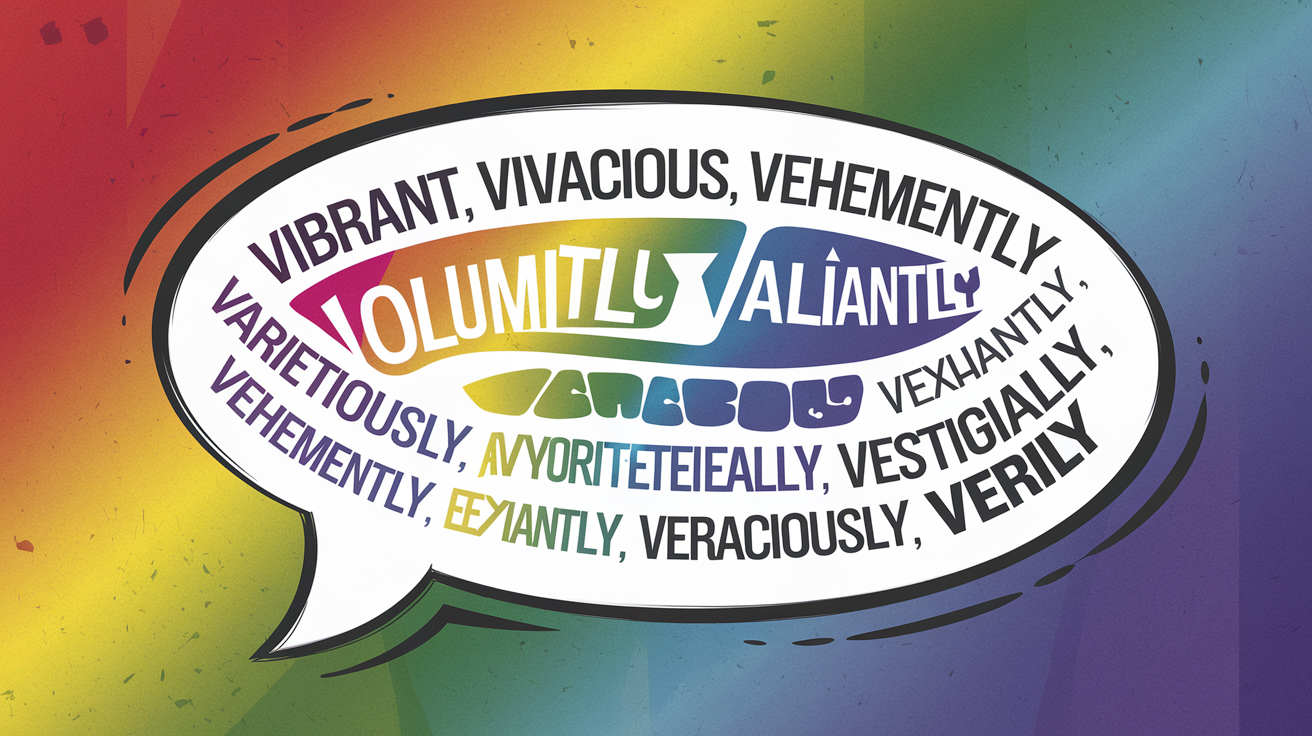Adverbs bring vividness and clarity to our sentences, helping us describe actions, emotions, and characteristics in more detail. Today, we’ll explore a rich list of adverbs that begin with the letter “S,” each one valuable for adding descriptive power to your communication. Whether you’re looking for a way to describe a person positively, add emphasis, or simply expand your vocabulary, these “S” adverbs offer a wealth of options.

Why Use Adverbs That Start with S
Adverbs beginning with “S” offer a diverse range of expressions that can bring precision, energy, and clarity to language. Using adverbs from this specific group allows for creative descriptions, adding subtlety or intensity to statements. Many of these adverbs work particularly well for highlighting positive qualities in people, actions, or events, allowing for a more nuanced and encouraging tone.
For instance, instead of saying “He works well,” you could say, “He works steadily,” which implies persistence and reliability. Similarly, using “She responded swiftly” conveys a prompt, efficient action. The letter “S” includes a broad array of adverbs that are both impactful and memorable, making them excellent choices to enhance your language in meaningful ways.
92 Adverbs That Start with “S” and Their Meanings
Adverbs add depth and precision to our sentences, modifying verbs, adjectives, and even other adverbs. Below is a comprehensive list of 100 adverbs beginning with “S,” each with a brief explanation to help you understand how to use them effectively. Whether you’re aiming to describe actions more vividly or add clarity to your sentences, this list will provide you with a range of adverbs suitable for various contexts.
| Adverb | Explanation |
|---|---|
| Safely | In a way that avoids risk or harm. |
| Sagaciously | In a manner that shows keen insight or wisdom. |
| Sagely | Acting in a wise or knowledgeable way. |
| Satisfactorily | To a level that meets expectations or needs. |
| Satisfyingly | In a way that gives satisfaction or fulfills a desire. |
| Savvily | Done in a way that shows practical knowledge or expertise. |
| Scarily | In a frightening or alarming manner. |
| Scientifically | In a way that is based on or relates to science or scientific methods. |
| Securely | Done in a manner that is safe and protected. |
| Sedately | In a calm, dignified, or unhurried manner. |
| Seemingly | Appearing to be a certain way, often without it being confirmed as true. |
| Selflessly | In a way that shows concern for others’ needs over one’s own. |
| Sensationally | In an exceptionally striking or exciting manner. |
| Sensibly | In a way that shows good sense or judgment. |
| Sensuously | In a way that appeals to or affects the senses. |
| Separately | Done apart from others; individually. |
| Serenely | In a peaceful or calm manner. |
| Severally | Individually or separately, not together. |
| Severely | In a strict, intense, or harsh manner. |
| Sheepishly | In a shy, embarrassed, or bashful way. |
| Shakily | In a way that shows uncertainty or instability. |
| Sharply | In a quick, intense, or clear-cut manner. |
| Shrewdly | Showing clever awareness or resourcefulness, often in practical matters. |
| Shyly | With shyness or hesitation due to nervousness or lack of confidence. |
| Silkily | In a smooth, soft, or refined manner. |
| Silently | Without making noise; in a quiet way. |
| Simply | In a straightforward or unpretentious manner. |
| Sincerely | In a way that is genuine or heartfelt. |
| Single-handedly | Done alone, without help from others. |
| Sinuously | In a winding, curving, or graceful way. |
| Skillfully | In a way that shows great skill or competence. |
| Skilfully | British spelling of “skillfully”; done with expertise. |
| Skyward | Directed toward the sky or upwards. |
| Slightly | To a small extent or degree. |
| Slyly | In a cunning, secretive, or mischievous manner. |
| Smartly | In a neat, stylish, or quick way. |
| Smoothly | In a way that is free of difficulty, interruptions, or friction. |
| Snapshottishly | In a way that captures brief, quick moments or details. |
| Soberly | In a serious, solemn, or subdued way. |
| Sociably | In a friendly or social manner. |
| Softheartedly | Showing kindness and compassion. |
| Softly | In a quiet, gentle, or tender manner. |
| Solemnly | In a formal or serious way. |
| Solidly | Done with strength, support, or stability. |
| Solitarily | In a way that is alone or without companions. |
| Sophisticatedly | In a way that is refined, cultured, or complex. |
| Sorrowfully | With sadness or regret. |
| Soundly | Done in a thorough, healthy, or reliable way. |
| Southward | Directed toward the south. |
| Sparklingly | In a lively, bright, or enthusiastic way. |
| Specifically | In a detailed and precise way. |
| Speculatively | Based on conjecture or guesses, rather than facts. |
| Speedily | Done quickly or without delay. |
| Spellbindingly | In a captivating or mesmerizing manner. |
| Spiritedly | In a lively or energetic way. |
| Spiritually | In a way that relates to the soul or religion. |
| Spontaneously | Without planning; naturally and freely. |
| Sportingly | Done in a fair, supportive, or friendly manner. |
| Spotlessly | In a way that is completely clean or pure. |
| Spuriously | In a manner that is false or deceptive. |
| Squarely | Directly or straightforwardly. |
| Stably | In a way that is steady and unchanging. |
| Staggeringly | Extremely or surprisingly. |
| Starkly | In a way that is clear, plain, or striking. |
| Steadfastly | With firm determination or loyalty. |
| Steadily | In a continuous, unchanging way. |
| Stealthily | Done in a secretive or sly manner. |
| Sternly | In a strict, serious, or severe way. |
| Strategically | With a plan or purpose in mind. |
| Strictly | Done without flexibility or deviation from rules. |
| Strikingly | In a way that is very noticeable or remarkable. |
| Strongly | With strength or emphasis. |
| Stubbornly | Refusing to change or yield. |
| Subsequently | Following or coming after. |
| Subconsciously | Without conscious awareness. |
| Substantially | To a great or significant degree. |
| Successfully | In a manner that achieves a goal or purpose. |
| Suddenly | Quickly or unexpectedly. |
| Suitably | Appropriately or properly for a situation. |
| Sultrily | In an attractive or alluring way. |
| Supremely | In an extremely high or superior manner. |
| Surely | Certainly or without a doubt. |
| Surpassingly | Exceedingly or exceptionally. |
| Surreptitiously | Done secretly or stealthily. |
| Surreally | In a way that is bizarre or dreamlike. |
| Surprisingly | In an unexpected or astonishing way. |
| Suspiciously | In a way that arouses suspicion or distrust. |
| Sweetly | In a kind or affectionate manner. |
| Swiftly | Done quickly or at a high speed. |
| Symmetrically | In a balanced or evenly proportioned way. |
| Sympathetically | In a compassionate or understanding way. |
| Systematically | In an organized, planned, or methodical way. |
Each of these adverbs beginning with “S” can bring precision and vividness to your writing, helping to describe actions, thoughts, and emotions more effectively. Whether used in formal writing or casual conversation, these adverbs enhance your expression and offer a richer vocabulary for describing the world around you.
Example Sentences with Adverbs Starting with “S”
Here are some example sentences that demonstrate effective use of adverbs starting with “S.” These sentences illustrate how adverbs can add clarity, emotion, and detail to our descriptions:
- Safely: “She crossed the busy street safely, ensuring no cars were nearby.”
- Sagely: “The professor nodded sagely as he listened to his students’ ideas.”
- Satisfactorily: “He completed the project satisfactorily, meeting all the requirements.”
- Securely: “The documents were stored securely in the office vault.”
- Seemingly: “She was seemingly calm, but her hands revealed her nervousness.”
- Selflessly: “He selflessly volunteered his time to help the community.”
- Sensibly: “They sensibly decided to bring umbrellas on the cloudy day.”
- Sharply: “The teacher spoke sharply, quickly getting the students’ attention.”
- Shrewdly: “She shrewdly invested in stocks, earning a high return over the years.”
- Silently: “He silently observed the scene, not wanting to interrupt.”
Each of these sentences demonstrates how adverbs can give additional context, emotion, or detail, helping readers to understand actions and descriptions more vividly.
Tips for Using Adverbs Effectively in Writing and Speech
Adverbs are essential tools in both writing and speech, adding depth, clarity, and emotion to our expressions. When used effectively, adverbs can enhance descriptions and help convey intentions more vividly. By understanding how to use adverbs thoughtfully, you can make your communication more impactful and engaging.
- Not every sentence benefits from an adverb. When you do use them, select ones that add meaningful details. For example, “She completed her work skillfully” provides a clearer image than simply saying “She completed her work.”
- Using adverbs alongside adjectives can enhance your description without overdoing it. Instead of “She is kind,” consider “She speaks kindly,” which describes both her nature and her actions.
- Positive adverbs help convey an uplifting tone. Using “S” adverbs such as “successfully” and “supportively” in both formal and informal contexts can create a more encouraging and positive atmosphere.
Choosing the right adverbs and using them with care can transform ordinary statements into memorable expressions. Whether to add clarity, positivity, or a vivid image, thoughtful use of adverbs in speech and writing can make communication more effective and enjoyable.

Adverbs are powerful language tools that can help you express actions and attitudes with precision. Using adverbs that begin with “S” can enrich your vocabulary and provide you with the right words to describe actions and people positively. So whether you’re writing, speaking, or simply looking to expand your language skills, keep this list handy for inspiration and motivation.




